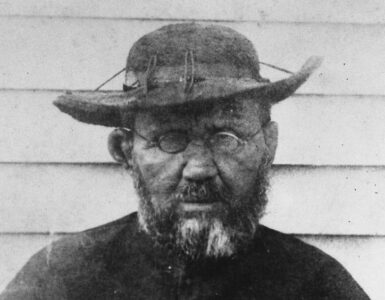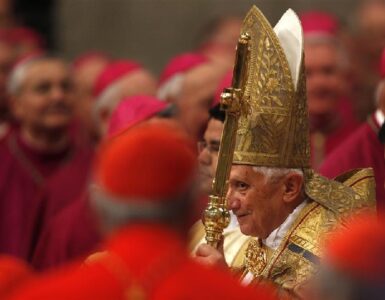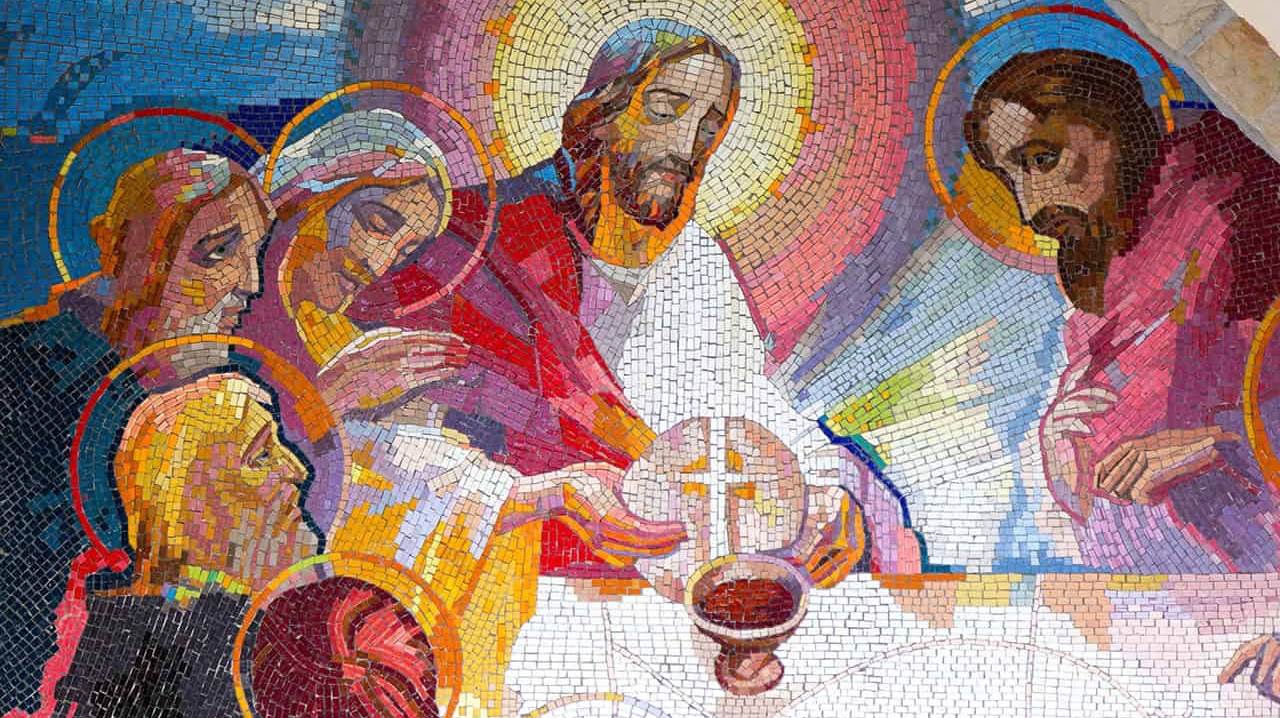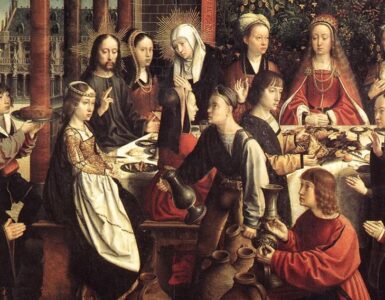The city of Vienna is the capital of Austria in Europe, and up until the end of World War I, it was also the capital city of the vast and important Austrian Empire. The ruling family, the Hapsburgs, were devout Catholics, and one particular church in the city was used for all the royal baptisms, weddings, and funerals—and a unique ritual was followed whenever a member of the royal family died. When the funeral procession arrived at the church, the main doors weren’t open; instead, they were locked, forcing one of the royal guards to knock. From inside, a priest would ask, “Who is it who desires admission here?” The guard would call out in an officious voice, “His apostolic majesty, the emperor!,” only to have the priest respond, “I don’t know him.” A second time the guard would knock, and in response to the priest’s question, shout in an even louder voice, “His apostolic majesty, the highest and greatest of all emperors!” Again, the response from inside would be, “I don’t know him.” Finally, after the third knock, the priest would ask, “Who is it who desires admission?,” and the guard would respond in a subdued voice on the emperor’s behalf, “A poor sinner, your brother”—and only then would the doors be opened and the royal funeral procession allowed to enter (Bausch, A World of Stories, p. 326). This ritual was a way of reminding people that everyone, from highest to lowest, would one day face death and judgment. This truth should make us very humble in God’s eyes, for only humility reminds us of our constant need for His mercy and allows us to enter His kingdom.
There’s an English proverb which says “The branches that bear the most fruit hang the lowest,” and this image certainly applies to the tax-collector in Our Lord’s parable. Genuine repentance caused him to bow his head very deeply; he was so aware of his own sins that he didn’t dare point out the faults of others, and this great honesty and humility won him God’s blessing. It was quite a different matter with the Pharisee, whom Jesus’ listeners assumed was going to be the hero of the story. After all, he was a religious professional, very self-assured and capable of following the rules perfectly—so surely, people thought, he was entitled to look down on others less upstanding than himself. Our Lord shocked His audience by announcing that God was not pleased with the Pharisee, for the man’s moral blindness made it impossible for him to seek and receive the divine forgiveness he too needed. As the Book of Sirach says, it’s the prayer of the lowly one which pierces the clouds and reaches God’s throne; the Lord doesn’t play favorites or let important people off the hook just because of their worldly or religious status. St. Paul had to learn this lesson, for before his own conversion, he was a self- righteous Pharisee, convinced that he knew God’s will and was pleasing Him with his efforts to persecute the early Church. By the end of his life Paul was able to speak of having finished the race and kept the faith, thus meriting a crown of righteousness—but this only happened because he humbly accepted the Gospel after he was knocked off his horse and brought face to face with his own sinfulness and need for a Savior. Everyone has sinned—and so the first step in becoming truly holy is honestly admitting our sinfulness and humbly seeking God’s mercy.
All the saints understood this truth—for they wouldn’t have become saints without being humble—but there were some who had a hard time mastering this lesson. One of the foremost examples was Blessed Gunther, a monk in 11th century Germany. He lived ninety years. The first fifty years of his life were very sinful and scandalous, and the last thirty-five were very holy and inspiring; it was the five years in-between, when he was supposedly converted, that gave him the most trouble. Gunther was a worldly and ambitious nobleman who, at the age of fifty, came under the influence of a holy abbot named St. Gothard; with Gothard’s help, Gunther decided to change his life and do penance for his sins by living as a monk. He gave away all his property, except for one estate on which a monastery was located; St. Gothard insisted he give away that land too, but Gunther refused. The new monk then went on a pilgrimage to Rome, and on his return entered Gothard’s monastery. However, Gunther didn’t enjoy being just a humble monk; after all, he was related to St. Stephen, the king of Hungary, and to St. Henry, the Holy Roman Emperor. God surely wanted him to have a more prestigious position than just being a lowly monk, or so Gunther thought—and he insisted on being appointed abbot of the monastery whose property he still owned. This request was reluctantly granted, but over the next few years Gunther proved to be a failure as abbot; he couldn’t get along with the monks, who resented his high-handed ways, and the community began going into decline. Gunther suddenly became ill, and his mentor St. Gothard came to visit him—not to console him, but to rebuke him and to insist that the illness was a sign from heaven that God wasn’t pleased with his stubbornness and pride. Gunther listened and humbly repented; this time his conversion was complete and sincere, allowing him to achieve true holiness during the remainder of his life.
Even when we’re answering God’s call and following Jesus, there’s always a danger that we’ll convince ourselves we’re serving God, when we’re actually just serving ourselves. It’s very tempting to use religion to polish our reputation, make ourselves look important, or inflate our own opinion of ourselves—and once this happens, it’s a very short step to that sort of behavior Jesus condemned in the Pharisee: judging others and becoming fixated on their faults, while completely ignoring our own. To avoid these great spiritual dangers, we must humbly ask God to reveal our faults to us, and help us overcome our moral blind spots; we must obey the teachings and commandments of the Church, even when we don’t understand or agree with them; we must make regular use of the Sacrament of Penance; we must make every possible effort to overcome any tendency toward criticizing or gossiping about others; we must freely accept our God-given vocation in life, even if it isn’t exactly what we wanted or expected; we must examine our consciences on a regular basis, preferably as part of our prayer each day; and we must forgive others and avoid holding grudges, for only in this way can we be sure of receiving God’s forgiveness. An incomplete conversion in which pride still ensnares our hearts, as initially happened to Blessed Gunther, will do us little good; only an ongoing attitude of humility, renewed again and again, will truly allow us to become pleasing in God’s sight. It was pride, or a desire to be exalted above all creation, which led to the downfall of Lucifer, the greatest and most beautiful of all the angels, and in his eternal fury and humiliation Lucifer, now known as Satan, tries to use this same trap of pride against us. His temptations can only be conquered by honestly admitting our sins and totally relying on God’s grace—and Jesus assures us that if we humble ourselves this way, we will on the day of God’s choosing share in His glory.





























